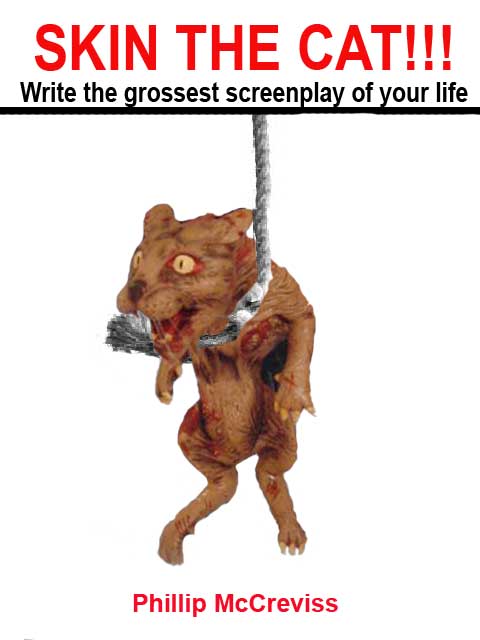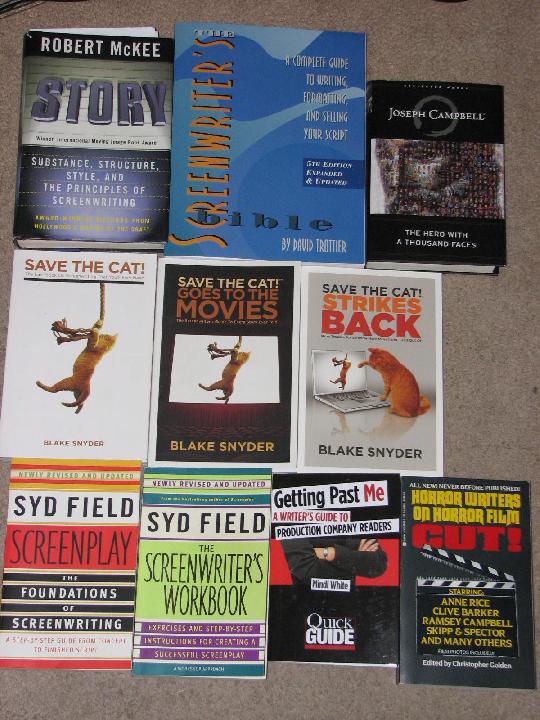As a follow up to Ernest's comment, there are different ways of telling stories that are culturally significant. Reading some folktales from Southeast Asia or even Eastern Europe can sometimes leave one wondering, "What was the point? What was the story?". Most of us are raised from birth that stories follow a specific order: "Once upon a time there was so-n-so who was unhappy. Something happens and their life changes. They are besieged and somehow live through the event. So-n-so is now transformed and lives happily-ever-after." That is our earliest introduction to the three-act structure and hero's journey.
If all of us wrote like that, however, we'd be littered with children's books. Often older children will make the hero turn dark. Suddenly we have ghost stories told around campfires. I know that every writing teacher in grade school teaches paragraphs have a lead-in sentence, the body, and then the transition sentence. (Sounds like a scene) Every story has an introduction, the middle, and the resolution/end. People talk about 'acts' as if they are things and lose sight that they are labels. 3 Acts = Beginning, Middle, End. I start my tale, I tell my tale, I end my tale. In that sense, we've been bombarded with the three act model for over thirteen years of life. Then comes high school.
Creative teens start challenging all the rules trying to put out deep philosophical pieces that, as far as some 'adults' are concerned, come across as self-indulgent tripe. Some of it is good. They will often experiment with free form poetry where there are no rules. Creative writing instructors say "don't use the same word twice", "use lots of descriptive words", etc. Anyone who reads first time scripts recognize how some of that 'creativity' gets carried over.
Others, who want to make money at writing, will follow public trends and write to that mass market. Romance books are terribly formulaic but successful. Most spy novels nowadays follow very similar (and often predictable) storylines. It's no different than kids who practice drawing manga or cartoon characters until they are proficient. Is it less artistic because they didn't do something original? A few books do step outside of the norm. Reality TV is so formulaic with all the inherent conflict that it's more parody of life.
Not to carry the metaphor too much farther, filmmaking is visual storytelling. Most writers want to sell their work (like authors), and so follow what the viewing public wants/expects. Let's think about films and books for a second. Pop-up books became a rage when they first appeared, much like 3D. Then there were scratch and sniff books, and yes, the movie industry played with that too! In the mid 1700s, Laurence Sterne published "Tristram Shandy". It was bawdy, non-linear, and appeared in nine volume. It was "Kentucky Fried Movie", "Memento" and the Star Wars saga wrapped up in one.
There are other structures for stories, hence movies. Tarantino makes effective use of non-linear storytelling. The three act structure is (1) familiar to writer and the public from childhood, (2) simple to execute by not requiring planning, and (3) like good romance novels, should pull a profit if done halfway decently. To think or argue that there is only one approach is naive at best.
It doesn't matter if you follow a cookie-cutter approach or not, the reality is that most scripts will never be made. The bad news is that most directors want 'out of the box' scripts, not 'formulaic' material. They often produce their own writings. They want showcase pieces that are original/unique. The studios often use their own internal writers who must follow prescribed practices. Writers inside the system are often the greatest exponents of these formula based approaches, so it becomes a knotty problem of which came first. The complaint against Disney features is that they are heavily formulaic, however Disney is a financially secure enterprise. Deviating off has not always been successful for them. Still, I'd advise against putting big musical numbers in your screenplay because it works for them.
If the story is a hero's journey, then use that approach. If not, don't strive to make it fit that model. The UCLA model (predictable points) has been adapted from your middle school writing class and a statistical analysis of many produced scripts. On average, by page 10 the central characters have been introduced along with the theme. If as a reader of hundreds of scripts I need to get a quick sense, that's useful to know. I can assess the general quality of a script by reading the first ten pages. Beyond that, specifying events to the page is hazardous. Like the hem length of women's skirts, pages and events vary among gurus and the times. Really, it should be dictated by your plot. Writing for television is much more structured than film but the advice for film doesn't readily apply in episodic series where there are several story arcs, not all of which are resolved initially. A reader will not pass on a good script because an event doesn't happen on page 22. Dialogue, plot, action, formatting play a far greater role. If there were any sage advice, it would be to make sure those first ten pages are captivating and draw the reader into your characters and story. It is often your first and only foot in the door.
Thanks for sharing the clip. I think every writer and filmmaker needs to have a good grounding in this idea. It's screenwriting 101 and a starting point. My only caveat is don't think that every movie or story follows (or needs to follow) that pattern. At some point, artists move beyond techniques to develop their own styles.










